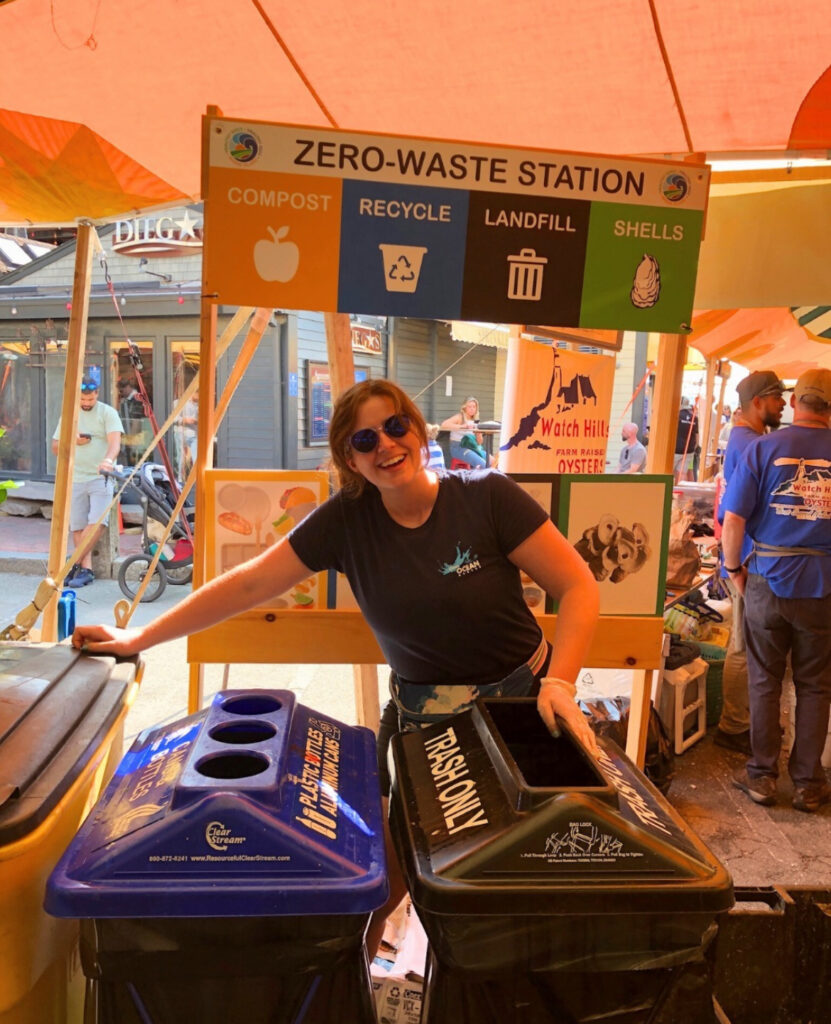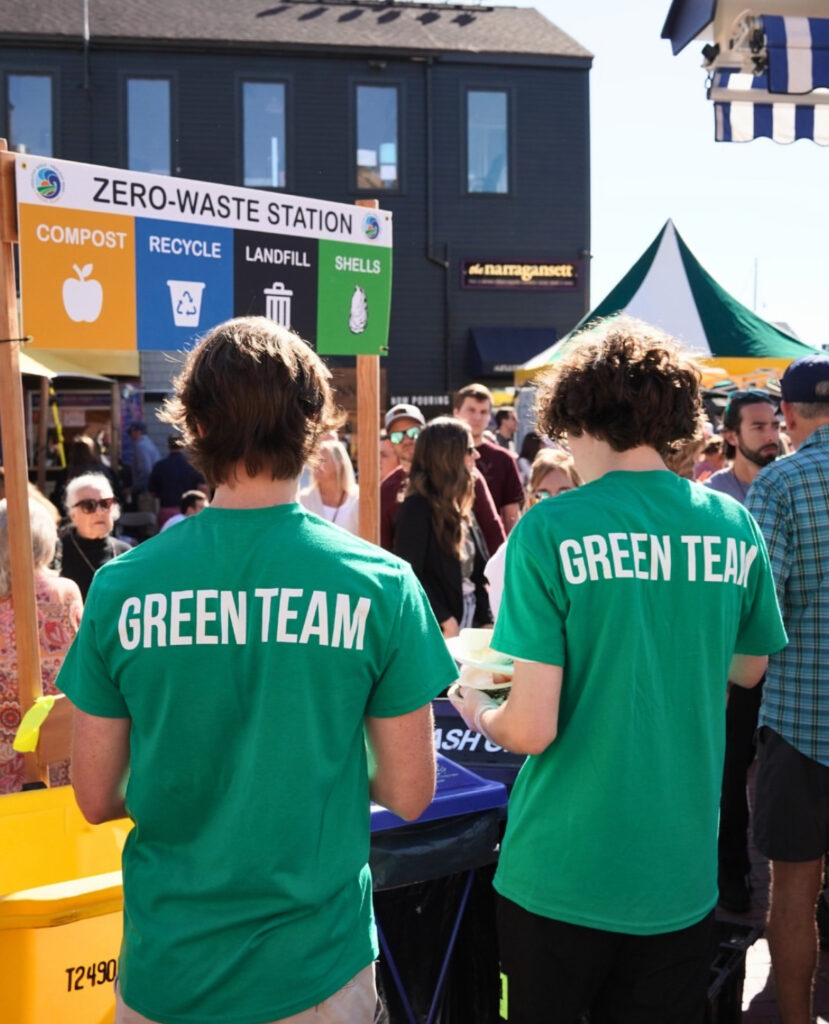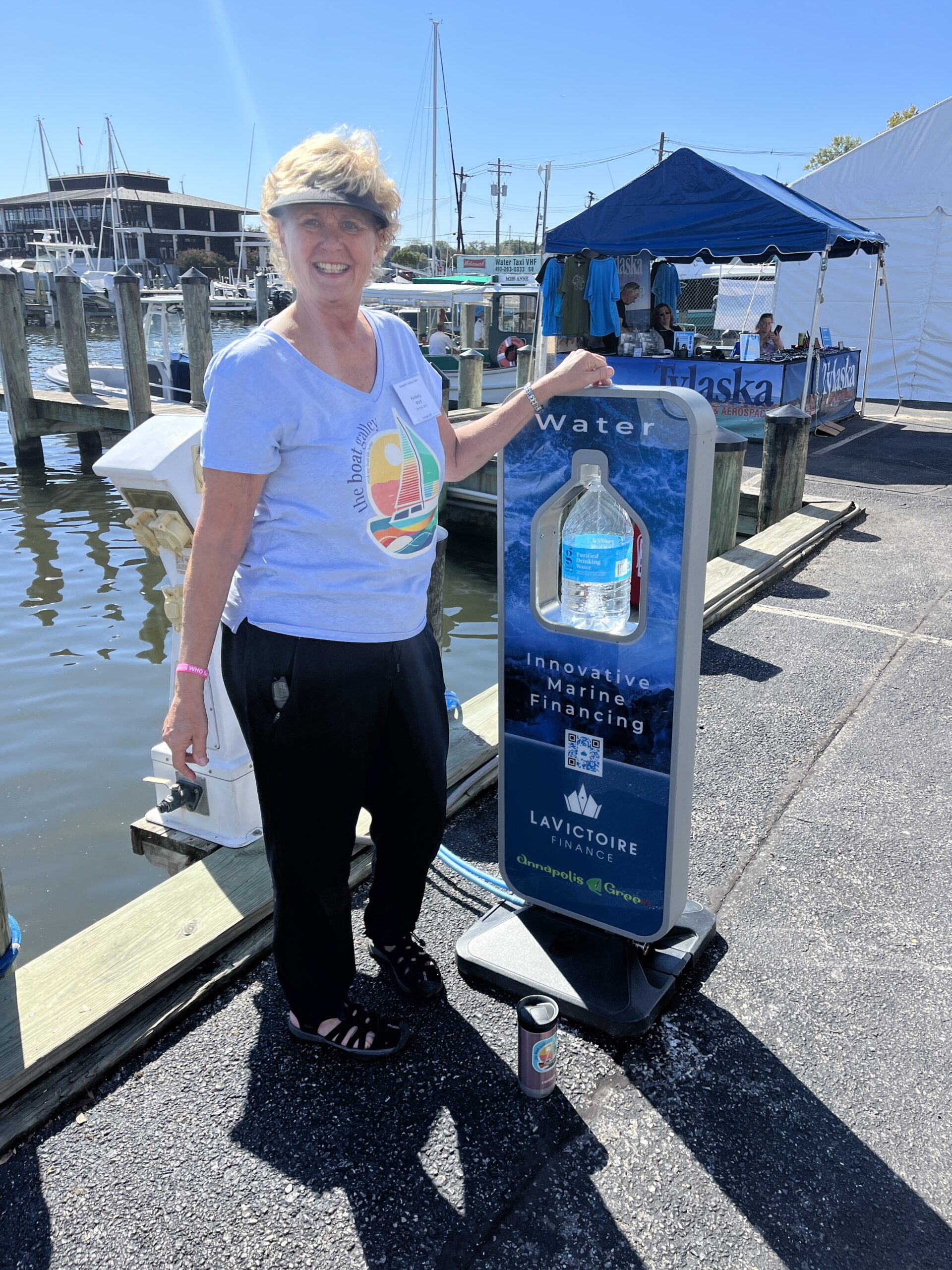Not all Clean Regattas are regattas! While boat shows might not immediately come to mind when you think about Clean Regattas, our program is designed to enhance sustainability for any event near water. In recent years, we’ve collaborated with events like the USVI Charter Yacht Show, the Annapolis Sailboat Show, and the Newport International Boat Show to mitigate their environmental footprints. Although our Clean Regattas best practices apply broadly, boat shows present unique challenges.
USVI Charter Yacht Show
Since 2018, the USVI Charter Yacht Show has consistently participated in our Clean Regattas program, even achieving the prestigious Platinum Level. Hosted annually by the Virgin Islands Professional Charter Association (VIPCA) at the IGY Yacht Haven Grande marina in St. Thomas, this event is more akin to an industry conference than a typical boat show, featuring a packed schedule of seminars, dinners, and award ceremonies. Central to their success in sustainability is the event’s dedicated Green Team, who ensure that the best practices are met.
The USVI, a popular yachting destination, faces significant environmental challenges, particularly concerning its fragile marine ecosystems. During the show, Oriel Blake, the executive director of VIPCA, highlighted these challenges at two presentations. She discussed VIPCA’s VI Marine Stewardship campaign and Project Green Flag—two initiatives encouraging mindful environmental practices among charter yacht crews in the Virgin Islands.

A highlight of the USVI Charter Yacht Show is the opportunity for charter brokers and crews to tour yachts and sample offerings at culinary and mixology competitions. Despite the potential logistical challenge of adhering to Clean Regattas best practices with dozens of participating yachts, the event turned this into an opportunity to showcase local cuisine. Each participating crew was required to use at least two locally sourced ingredients in their dishes and provide details about the origin of these ingredients.
This approach not only supports local producers but also educates participants and visitors about the value of local consumption and its positive impact on the environment.

Newport International Boat Show
The Newport International Boat Show in Newport, Rhode Island, participated in the Clean Regattas program for the first time in 2023. The boat show is held annually at a site that encompasses 15 acres of Newport’s downtown waterfront, hosts more than 600 vendors and exhibitors, and attracts thousands of visitors.

The show organizers had been wanting to improve the event’s environmental footprint but didn’t know where to start. Months prior to the show start in mid-September, we worked with their team to show how the Clean Regattas framework can be applied to their event. As we went through the best practices, we discussed sustainability measures that the show was already doing, such as using an electronic ticketing system, reusable signage, and working with community organizations. Other best practices that we suggested included encouraging alternative transportation, hosting a local beach or marina cleanup, and bringing awareness to local sea life and habitat protection with signage and communications with vendors and visitors.
Since the show takes place in downtown Newport, event organizers were somewhat limited by the infrastructure and systems that are already in place. Waste separation was one of the major challenges that they wanted to tackle this first year as a Clean Regatta participant. With the assistance of a local organization, the show was able to provide several waste stations throughout the show, which were noted on the show site map, where visitors could separate their trash, recycling and compost.
In future years, organizers would like to tackle installing water refill stations to help eliminate single-use plastic at the show.

Annapolis Boat Shows
Every fall, thousands of sailors and boaters flock to Annapolis, Maryland, for a double-header of boat shows held over two consecutive weekends, the Annapolis Powerboat Show and Annapolis Sailboat Show. In addition to the influx of visitors, the shows also bring in hundreds of vendors and exhibitors.
Like the Newport International Boat Show, the Annapolis boat shows are held in a downtown, waterfront location and face some similar challenges. While the show had already been doing some of the Clean Regattas best practices, such as electronic ticketing and offering reusable bags to attendees, show organizers wanted to reduce the events’ environmental footprint even further.

For their first year participating in the Clean Regattas program, show organizers decided to focus on better waste management and adding water refill stations. Through working with a new waste hauler and using clearly marked and well-placed bins, they were able to drastically improve recycling rates. Annapolis Green, a local nonprofit, provided five water refill stations for both weekends – a huge win for their goal of reducing single-use plastic. Organizers also made a real effort to share the shows’ environmental initiatives with visitors, encouraging them to bring their own reusable water bottles, and highlighting the eco-friendly products and boats being displayed at the show.
Boat Show Challenges
A major hurdle for boat and trade shows is managing the diverse array of vendors, as it can be difficult to regulate their practices. For example, even if the event avoids single-use plastics, vendors might not. We recommend regular communications with exhibitors and vendors to let them know about the event’s Clean Regattas sustainability goals, and to encourage them to try to implement some of the best practices into their booths and displays. As a resource, we offer our Ocean-Friendly Exhibitor tips that can be shared with vendors prior to the show.
Implementing Clean Regattas best practices at a boat show can be daunting, but the potential impact is substantial. Even modest changes, when multiplied by the number of attendees, staff, volunteers, and exhibitors, can significantly benefit our oceans.


